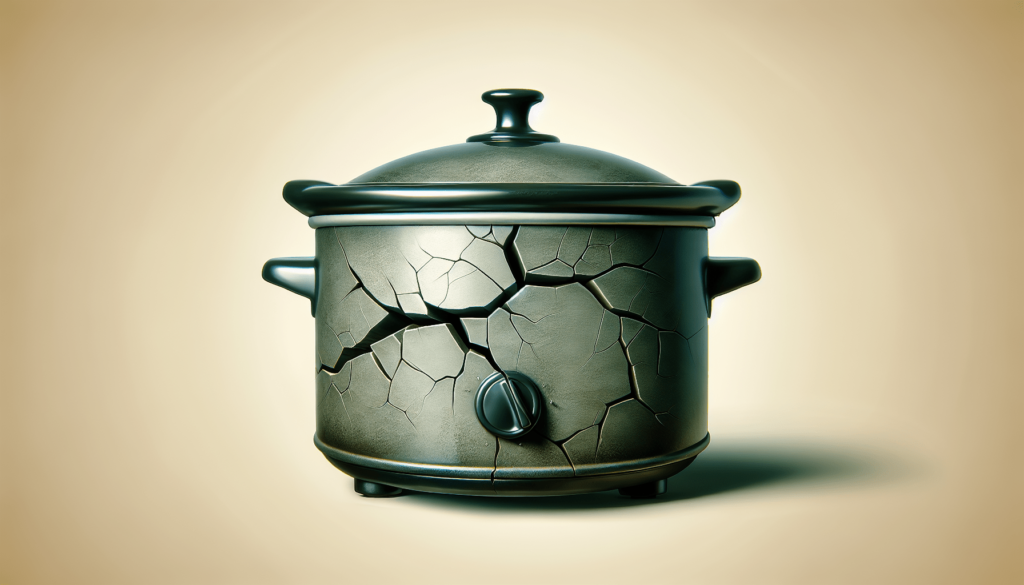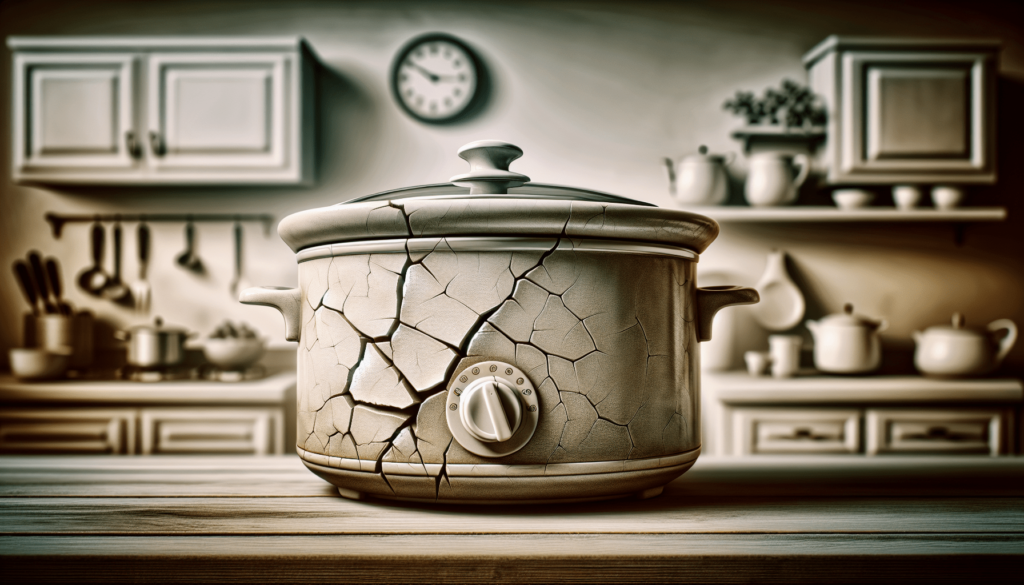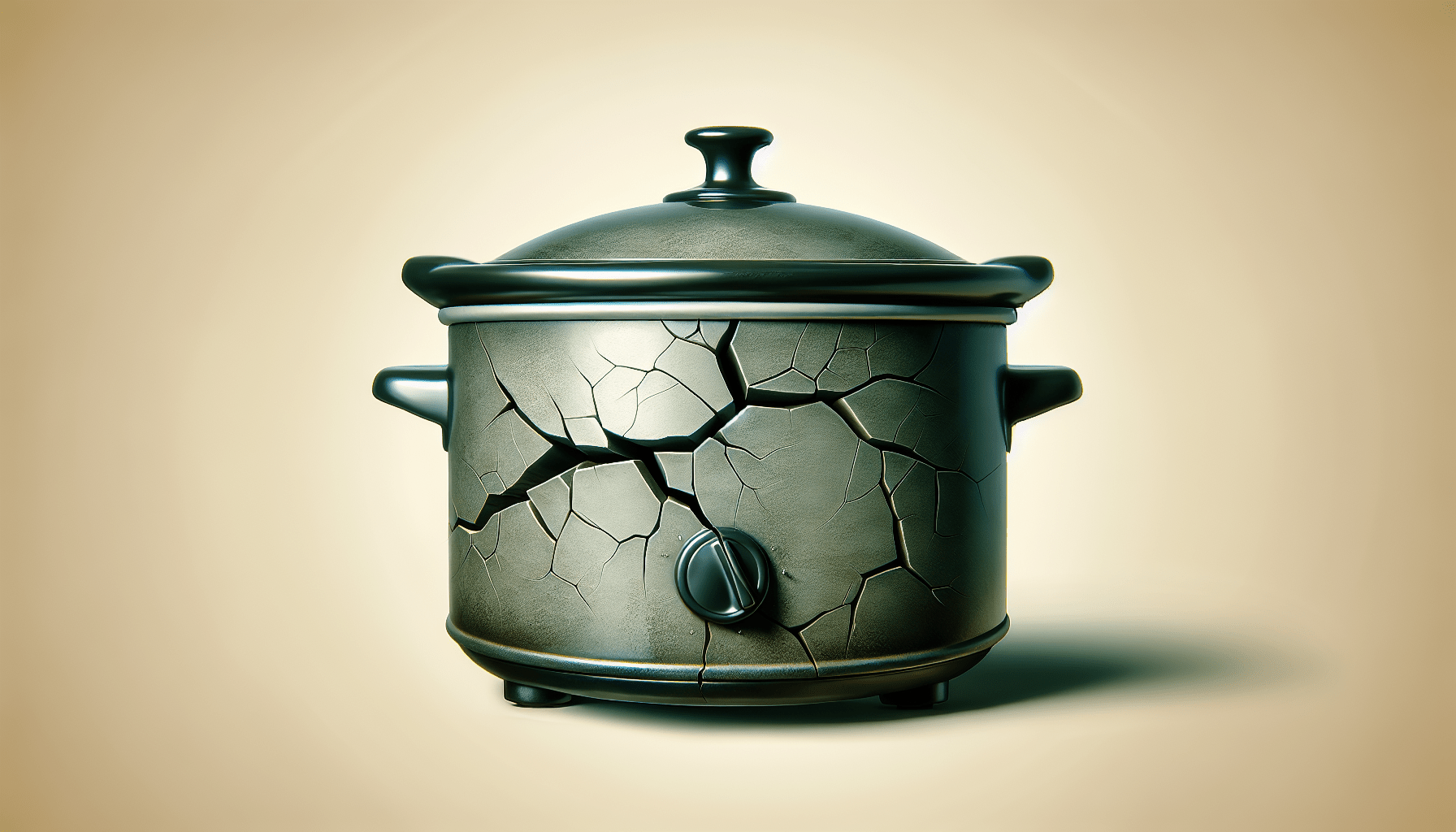Did you know that while slow cookers are praised for their convenience and ability to create delicious, tender meals with minimal effort, they also have a few drawbacks? In this article, we will explore the disadvantages of using a slow cooker, shedding light on the potential downsides that you may want to consider before fully embracing this popular kitchen appliance. From limited flexibility in cooking times to certain dishes that might not lend themselves well to slow cooking, we’ll uncover some of the cons that come with the benefits of using a slow cooker.

Limited Cooking Techniques
Limited to Slow Cooking
When using a slow cooker, you are confined to slow cooking techniques. While this is suitable for certain dishes, it may limit your culinary options. Slow cooking typically involves a low and steady heat over an extended period of time. This gentle method is perfect for tenderizing tough cuts of meat and letting flavors meld together. However, if you are looking for a quick sear, sauté, or stir-fry, a slow cooker cannot replicate the high heat required for these techniques.
Cannot Achieve High Heat
One of the major limitations of a slow cooker is its inability to achieve high heat levels. While slow cooking can create tender and flavorful dishes, it falls short when it comes to achieving crispy textures or achieving that nice browning on the surface of some foods. The low and consistent heat of a slow cooker prevents the Maillard reaction, which is responsible for creating the desirable browning and flavors on meat and vegetables. This lack of high heat can limit the overall taste and texture profile of certain dishes.
Limited Control Over Cooking Process
With a slow cooker, there is limited control over the cooking process. Unlike other cooking methods where you can adjust the heat, increase or decrease cooking times, or check doneness easily, slow cookers offer less flexibility. Once you have set the desired temperature and cooking time, you have minimal control until the cooking process is complete. This limited control can be frustrating if you need to make adjustments or actively monitor the progress of your dish.
Long Cooking Time
Food Takes Longer to Cook
One of the notable disadvantages of using a slow cooker is the extended cooking time. Slow cookers are designed to cook dishes slowly and gradually, which means you will need to plan ahead for longer cooking times. While this may not be an issue if you have advance notice or are preparing meals in advance, it can become inconvenient for last-minute meals. If you’re looking for a quick and efficient meal preparation method, a slow cooker may not be the best choice.
May Not Be Suitable for Last-minute Meals
Due to the long cooking time associated with slow cookers, they may not be suitable for last-minute meals. If you are short on time or have unexpected guests, relying solely on a slow cooker may not be ideal. Slow cookers excel in dishes that require hours of gentle cooking, allowing flavors to develop over time. However, if you’re pressed for time and need to whip up a meal quickly, you may need to consider alternative cooking methods.
Risk of Overcooking
Difficult to Gauge Cooking Time
While slow cookers are designed to cook food low and slow, it can be difficult to accurately gauge the cooking time. Variables such as the size and thickness of the ingredients, starting temperature, and moisture content can all affect the cooking time. Unlike cooking methods where you have more control and can actively monitor the progress, slow cooking does not provide the same level of precision. Overcooking can result in dry or mushy food, compromising the overall quality of your dish.
Can Lead to Dry or Mushy Food
The risk of overcooking in a slow cooker can lead to dry or mushy food. Slow cooking relies on the prolonged exposure to moist heat, which can cause certain ingredients to become excessively soft or lose their texture. Vegetables may turn mushy, and proteins can become dry and lack the desired juiciness. Achieving the perfect doneness and texture can be a challenge when using a slow cooker, especially for more delicate ingredients that require precise cooking times.
Lack of Browning
Food May Not Develop Rich Flavor or Color
One of the disadvantages of slow cooking is the lack of browning that occurs. Browning plays a crucial role in developing deep flavors and appetizing colors in many dishes. Unfortunately, slow cookers do not provide the high heat needed to initiate the Maillard reaction, which is responsible for browning. As a result, dishes prepared in a slow cooker may lack the robust flavors and appealing appearance that browning provides, leading to a potentially less flavorful end result.
Difficult to Achieve Crispy Texture
Crispy textures are highly desired in many dishes, but they can be difficult to achieve with a slow cooker. Without the ability to reach high heat levels, a slow cooker cannot provide the necessary conditions for foods to develop a crisp exterior. Crispy textures, such as the golden crust on roasted meats or the crunchy top on casseroles, can elevate the overall dining experience. If you enjoy dishes with crispy textures, you may need to explore other cooking methods or additional finishing techniques.

Space Requirement
Takes Up Countertop Space
A slow cooker takes up valuable countertop space in your kitchen. Depending on the size and design of your slow cooker, it may monopolize a significant portion of your available workspace. This can be troublesome, especially if you have a small kitchen with limited countertop area. The dedicated space required for a slow cooker might become a hassle if you need room for other appliances or tasks.
Difficult to Store in Small Kitchens
For those with small kitchens, finding adequate storage space can be a constant challenge. Slow cookers can be bulky and may not easily fit into compact cupboards or cabinets. Their size and shape can limit your options when it comes to finding a suitable storage spot. If space is already at a premium in your kitchen, you may need to carefully consider whether a slow cooker is a practical addition or if it will further restrict your storage options.
Need for Planning Ahead
Requires Prepping Ingredients in Advance
Using a slow cooker effectively requires planning and preparation in advance. Since slow cookers have longer cooking times, you need to plan your meals ahead by prepping and chopping ingredients in advance. This means dedicating time to prepare your dish early on and having all the necessary ingredients ready to go. If you prefer spontaneous cooking or tend to decide your meals on the spot, the need for preparation and preplanning may not align with your cooking style.
May Not Be Suitable for Spontaneous Cooking
If you enjoy the freedom and flexibility of spontaneous cooking, a slow cooker may not be the best fit for your culinary needs. Slow cooking often requires careful planning and timing, which can be at odds with the more impromptu nature of spontaneous cooking. If you prefer the ability to cook on a whim and adapt recipes on the spot, a slow cooker might limit your spontaneity in the kitchen.
Limited Recipe Options
Not Suitable for Quick-cooking Recipes
Slow cookers are not suitable for quick-cooking recipes that require high heat and fast cooking times. Since slow cookers operate at a low and steady heat, they are not efficient at quickly cooking certain ingredients or achieving desired textures. Dishes that rely on searing, stir-frying, or other rapid cooking techniques are simply not compatible with the slow cooking method. If you enjoy a wide variety of quick-cooking recipes, a slow cooker may not offer the versatility you desire.
Certain Foods Cannot Be Cooked in a Slow Cooker
While slow cookers excel at tenderizing tough cuts of meat and creating rich stews and soups, there are certain foods that cannot be cooked using this method. Delicate and quick-cooking ingredients, such as seafood or delicate leafy greens, are not well-suited for slow cooking. The prolonged cooking time and gentle heat can result in overcooking or texture loss for these types of ingredients. If you frequently cook dishes that incorporate these ingredients, a slow cooker may not be the most practical option for you.
Food Safety Concerns
Risk of Bacterial Growth at Low Temperatures
Slow cookers operate at low temperatures, which can create a risk of bacterial growth if proper precautions are not taken. The initial heating phase of a slow cooker might not meet the ideal temperature to kill off potential bacteria. It is essential to ensure all ingredients reach a safe internal temperature to prevent foodborne illnesses. Careful monitoring, proper handling, and following recipes with established guidelines can help mitigate the risk of bacterial growth and ensure food safety when using a slow cooker.
Needs Proper Monitoring and Handling
While the slow cooking process may seem hands-off, it still requires proper monitoring and handling to ensure food safety. It is important to periodically check the internal temperature of the food being cooked and make sure it reaches a safe level. Additionally, handling ingredients properly before cooking and storing leftovers promptly and correctly are essential for food safety. Neglecting these precautions can put you at risk of consuming contaminated food, leading to potential health issues.
Lack of Versatility
May Not Be Suitable for All Types of Ingredients
When it comes to versatility, slow cookers may come up short for certain types of ingredients. While they excel at breaking down tough meats and creating flavorful stews, they may not be the ideal choice for all ingredients. Delicate proteins or vegetables that are best enjoyed with a crisp texture may not fare well in a slow cooker. It’s important to consider the specific ingredients you frequently use in your cooking before relying solely on a slow cooker as your primary cooking method.
Limited Range of Cooking Styles
Another factor to consider is the limited range of cooking styles that can be achieved with a slow cooker. Slow cooking is best suited for dishes that benefit from long cooking times and gentle heat. If you enjoy a wide variety of cooking styles, such as searing, grilling, or baking, a slow cooker may not be able to accommodate these preferences. Having a diverse array of cooking techniques at your disposal can help you create a wider range of flavors and textures in your meals.
Energy Efficiency
Long Cooking Times Consume More Energy
One drawback of using a slow cooker is that long cooking times can consume more energy. Compared to other cooking methods, slow cookers require a more extended period of time to achieve desired results. The prolonged cooking process translates into increased energy usage. If you are conscious about your energy consumption and are looking for ways to reduce your environmental impact, the energy efficiency of a slow cooker might not align with your goals.
May Not Be Cost-effective for Some
In addition to energy consumption, the cost-effectiveness of a slow cooker may be a consideration for some individuals. While slow cookers are generally energy-efficient compared to traditional ovens, the extended cooking times can still contribute to higher energy bills. If you are concerned about the financial implications of using a slow cooker, particularly in terms of long-term energy expenses, it may be worth evaluating the cost-effectiveness for your specific circumstances.
In conclusion, while slow cookers offer convenience and the ability to create flavorful meals with minimal effort, they do come with some disadvantages. The limited cooking techniques, lengthy cooking times, risk of overcooking, lack of browning, space requirements, need for preplanning, limited recipe options, food safety concerns, lack of versatility, and potential energy inefficiency are all factors to consider when deciding whether a slow cooker is the right fit for your culinary needs. Assessing these drawbacks will help you make an informed decision and determine if a slow cooker aligns with your cooking style, preferences, and kitchen space.
